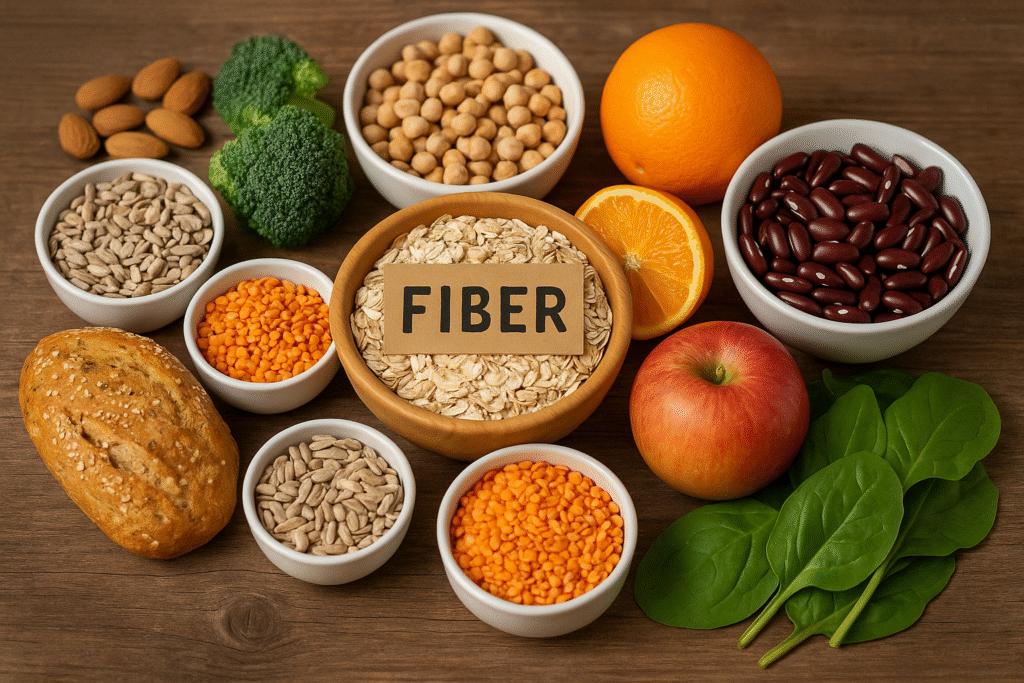Let’s get uncomfortable for a second:
We’ve been told our entire lives that fiber is the holy grail of gut health. “Eat your veggies or you’ll get constipated!” Sound familiar?
But what if I told you that fiber isn’t essential… and in many cases, it’s actually making your gut worse?
If you’re bloated, backed up, or living on greens and Metamucil just to stay “regular,” this blog might flip your world upside down—in the best way possible.

The Fiber Myth: Where It All Started
The idea that fiber is essential for digestion came from outdated research and a whole lot of assumptions.
The narrative:
- Fiber makes your stool bulkier
- That helps you go
- Therefore, no fiber = constipation
But… real-world evidence and modern research say otherwise.
In a 2012 clinical study from the World Journal of Gastroenterology, researchers actually found that people with chronic constipation improved their symptoms by removing fiber from their diet. More fiber = more bloating, more gas, and less relief.
So yeah—maybe your kale smoothie isn’t doing what you think it is.
So… What Happens When You Ditch Fiber?
Let’s talk about what happens when you stop eating plants filled with fiber (like in a strict carnivore or animal-based diet):
- Bloating goes down
- Constipation often resolves
- Gas dramatically decreases
- Inflammation in the gut calms
- Bathroom visits become predictable and easy (yep, even without a salad)
Sounds counterintuitive, right? But it’s happening across the board—and no, you don’t need 10 servings of vegetables a day to keep things moving.
But… How Can You Poop Without Plants?
Good question. The short answer: your gut doesn’t need fiber to function. What it needs is:
- Proper hydration
- Electrolyte balance (sodium, potassium, magnesium)
- Digestive support from bile acids, stomach acid, and enzymes
- A healthy intestinal lining (which gets damaged by many plant compounds, ironically)
Animal-based foods like meat, fat, organs, and even raw dairy support all of these processes without adding extra bulk or inflammation.
Also… ever wonder how babies poop like champs on zero fiber? There’s your answer.
When Fiber Becomes a Problem
Here’s where fiber turns from “helpful” to harmful:
- Fermentable fiber (like in beans or broccoli) can feed bad bacteria in the gut, leading to SIBO and gas
- Insoluble fiber (like bran and leafy greens) can irritate the gut lining, especially if you have IBS, IBD, or leaky gut
- It can block nutrient absorption due to antinutrients like phytic acid and oxalates
- High-fiber diets often require more fiber just to push things through—leading to a weird cycle of dependency
If your gut feels worse the more fiber you eat, you’re not broken. You’re probably just overloading it with the wrong inputs.
Bottom Line: You Don’t Need Fiber to Be “Regular”
This isn’t about demonizing plants. Some people tolerate them fine. But if you’re struggling with gut issues, skin problems, autoimmune flares, or chronic bloat—dropping the fiber (even temporarily) might be the most healing thing you can do.
Your digestive system wasn’t designed to rely on constant irritation to function.
You don’t need to chew through piles of kale or chase every meal with psyllium husk. Sometimes the simplest solutions—like quality meat, proper hydration, and ditching the plants for a while—get your body back to where it’s meant to be.
Want to test this out? Try a 7-day fiber-free challenge. Just meat, salt, fat, fruit (if you tolerate), and hydration. Track how you feel.
You might be shocked by what doesn’t come out… and what does.
Leave a Reply